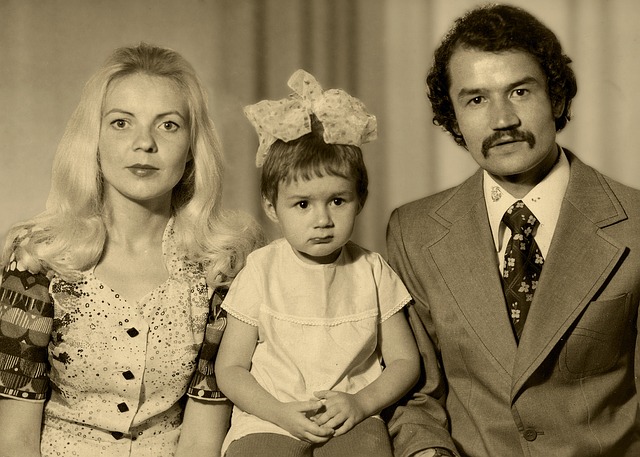Parental alienation, caused by malicious intent or manipulation, disrupts co-parenting dynamics and harms children. A co-parenting lawyer or mediator is crucial in mitigating this issue through open communication, clear guidelines, and respect for parental rights. Customized co-parenting plans address parenting time conflicts, structured schedules, and consistent boundaries to foster positive interactions. Co-parenting mediation sessions provide conflict resolution, compromises, and guidance on managing emotions and behaviors. By directly tackling parental alienation, these support systems restore stability, promote healthy bonding, and enhance children's well-being, aiming for fair shared custody plans post-divorce or separation.
Navigating the complexities of co-parenting after a separation or divorce can be challenging, especially when dealing with parental alienation. This article provides an in-depth guide to assisting co-parents in creating harmonious plans and resolving conflicts through mediation. We explore the impact of parental alienation on shared custody arrangements and highlight the critical role of a co-parenting lawyer in crafting effective strategies. Additionally, we delve into mediation as a powerful tool for managing parenting time disputes, offering essential support and guidance for fostering healthy parental relationships.
- Understanding Parental Alienation and its Impact on Co-parenting
- The Role of a Co-parenting Lawyer in Creating Effective Plans
- Mediation as a Tool for Resolving Parenting Time Conflicts
- Nurturing Healthy Parental Relationships: Guidance and Support for Co-parents
Understanding Parental Alienation and its Impact on Co-parenting

Parental alienation is a complex issue that can significantly impact co-parenting plans and relationships. It refers to a situation where a parent, often out of malice or due to manipulation, damages or distorts a child’s relationship with the other parent. This phenomenon can have profound effects on children, leading to confusion, emotional distress, and even long-term psychological issues. In the context of co-parenting, understanding parental alienation is crucial for creating effective strategies to mitigate its impact. A co-parenting lawyer or mediator plays a vital role in facilitating open communication, establishing clear guidelines, and ensuring both parents respect each other’s parental rights.
Co-parenting plans should be tailored to accommodate the best interests of the child while also addressing any existing parenting time conflicts. With proper guidance from a co-parenting attorney, parents can develop structured schedules, set consistent boundaries, and foster an environment conducive to positive interactions. Mediation sessions provide a safe space for resolving conflicts, facilitating compromises, and offering parental guidance on managing emotions and behaviors that may hinder the relationship. By addressing parental alienation head-on, co-parenting support systems help restore stability, promote healthy bonding, and ultimately enhance the overall well-being of the child.
The Role of a Co-parenting Lawyer in Creating Effective Plans

A co-parenting lawyer plays a pivotal role in creating effective co-parenting plans that prioritize the best interests of children involved in divorced or separated families. These legal professionals possess expertise in family law and a deep understanding of state regulations regarding parental rights, parenting time, and shared custody arrangements. They facilitate open communication between parents, ensuring both have a say in decision-making processes related to their offspring’s upbringing.
Co-parenting lawyers also serve as mediators during conflicts, offering neutral guidance to help parents navigate challenging conversations about scheduling, financial responsibilities, and major life decisions affecting their children. Their involvement ensures that the co-parenting plan is fair, legally sound, and tailored to meet the unique needs of each family, minimizing the risk of parental alienation and fostering a cooperative environment for continued joint parenting.
Mediation as a Tool for Resolving Parenting Time Conflicts

Mediation is an increasingly popular and effective tool for resolving conflicts between parents regarding parenting time and co-parenting plans. This alternative dispute resolution method brings both parents together with a neutral third-party mediator to facilitate open communication and negotiate a mutually agreeable arrangement. By focusing on collaboration rather than confrontation, mediation can help parents navigate complex emotional issues and legal considerations surrounding parental rights and responsibilities.
A co-parenting lawyer or mediator can assist in identifying the best interests of the child(ren) while ensuring both parents’ needs and concerns are addressed. This process aims to minimize the negative impact of parenting conflicts on the children, often associated with parental alienation. Through mediation, parents can work together to create a flexible, shared custody plan that promotes stability and a healthy relationship between the child(ren) and each parent, even after separation or divorce.
Nurturing Healthy Parental Relationships: Guidance and Support for Co-parents

Nurturing healthy parental relationships is a cornerstone in effective co-parenting plans. When parents separate or divorce, maintaining a civil and supportive connection can be challenging but is essential for the well-being of their children. A co-parenting lawyer can provide guidance on creating a cooperative environment, ensuring both parents have equal rights and responsibilities. This includes negotiating parenting time, establishing clear communication channels, and addressing any potential parental alienation concerns.
Co-parenting mediation offers a structured approach to resolve conflicts and foster positive interactions. With the help of a trained mediator, co-parents can navigate sensitive topics, make informed decisions about shared custody, and develop strategies to handle parenting challenges together. This collaborative process promotes respect, understanding, and a shared commitment to raising children in an amicable manner. By prioritizing parental guidance and support, families can move towards a more harmonious and beneficial co-parenting arrangement for everyone involved.
In navigating the complexities of co-parenting, especially in cases of parental alienation, seeking professional assistance is invaluable. A co-parenting lawyer plays a pivotal role in creating tailored plans that respect and safeguard parental rights, ensuring fair parenting time. Mediation serves as an effective tool to resolve conflicts, fostering healthier relationships between parents and their children. By combining legal expertise with supportive guidance, professionals enable co-parents to nurture shared custody arrangements, ultimately prioritizing the best interests of the child.
